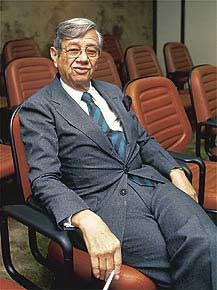O animal game and its history are part of the formation of Brazilian society. This widespread practice popularly known as gambling is extremely rooted in the daily routine of Brazilians. Who has never seen an animal game stand in your neighborhood square, close to home?
As the jogo do bicho is not yet legalized and regulated in Brazil, this practice is managed and administered by bicheiros – a figure surrounded by an extensive and varied imagery and folklore.
According to the courts, bicheiros are misdemeanors, since on October 3, 1941, then-president Eurico Gaspar Dutra signed the Criminal Misdemeanor Law. From that date onwards, gambling was banned throughout the green and yellow territory.
Even though they are considered criminals, bicheiros were not always seen this way by society. It’s different from what happens to drug lords or even casino owners.
During the golden age of the jogo do bicho in Rio de Janeiro, many bicheiros were considered big celebrities.
A major example of this fact was Castor de Andrade, one of the greatest administrators of the jogo do bicho. He put his money into football, at Bangu, and samba, at Mocidade Independente de Padre Miguel.

While Castor was alive, these two institutions in the West Zone of Rio experienced moments of glory on the field and on the Marquês de Sapucaí, respectively.
Another way of captivating the population was by helping and assisting the residents of places where he and the other bicheiros had “jogo do bicho” spots.
Legalization of the animal game
Even with the illegality, the animal game grew in such a way that it became part of the national culture. Decades later, in 2022, the National Congress, in Brasília, in the Federal District, opened the discussion for the release of this practice, as well as physical casinos and other games of chance.
On February 24 last year, with the vote remaining at 246 votes in favor and 202, the Chamber of Deputies approved the basic text of the bill that provides for the release of the jogo do bicho.
The next step in the legalization process is to go through a new vote, this time in the Federal Senate. However, in this legislative house the parliamentarians will fight a battle. That’s why it was created Parliamentary Front against Gamblingled by Senator Eduardo Girão, from Podemos-CE.
Politicians against the liberalization argue that gambling facilitates addiction, as well as crimes such as corruption, money laundering and foreign exchange evasion.
On the other side of the discussion, parliamentarians in favor claim that it will be possible to collect even more taxes to be injected later in various sectors of Brazilian society, thus generating many jobs and opportunities for the population.
O animal game and its history are part of the formation of Brazilian society. This widespread practice popularly known as gambling is extremely rooted in the daily routine of Brazilians. Who has never seen an animal game stand in your neighborhood square, close to home?
As the jogo do bicho is not yet legalized and regulated in Brazil, this practice is managed and administered by bicheiros – a figure surrounded by an extensive and varied imagery and folklore.
According to the courts, bicheiros are misdemeanors, since on October 3, 1941, then-president Eurico Gaspar Dutra signed the Criminal Misdemeanor Law. From that date onwards, gambling was banned throughout the green and yellow territory.
Even though they are considered criminals, bicheiros were not always seen this way by society. It’s different from what happens to drug lords or even casino owners.
During the golden age of the jogo do bicho in Rio de Janeiro, many bicheiros were considered big celebrities.
A major example of this fact was Castor de Andrade, one of the greatest administrators of the jogo do bicho. He put his money into football, at Bangu, and samba, at Mocidade Independente de Padre Miguel.

While Castor was alive, these two institutions in the West Zone of Rio experienced moments of glory on the field and on the Marquês de Sapucaí, respectively.
Another way of captivating the population was by helping and assisting the residents of places where he and the other bicheiros had “jogo do bicho” spots.
Legalization of the animal game
Even with the illegality, the animal game grew in such a way that it became part of the national culture. Decades later, in 2022, the National Congress, in Brasília, in the Federal District, opened the discussion for the release of this practice, as well as physical casinos and other games of chance.
On February 24 last year, with the vote remaining at 246 votes in favor and 202, the Chamber of Deputies approved the basic text of the bill that provides for the release of the jogo do bicho.
The next step in the legalization process is to go through a new vote, this time in the Federal Senate. However, in this legislative house the parliamentarians will fight a battle. That’s why it was created Parliamentary Front against Gamblingled by Senator Eduardo Girão, from Podemos-CE.
Politicians against the liberalization argue that gambling facilitates addiction, as well as crimes such as corruption, money laundering and foreign exchange evasion.
On the other side of the discussion, parliamentarians in favor claim that it will be possible to collect even more taxes to be injected later in various sectors of Brazilian society, thus generating many jobs and opportunities for the population.






